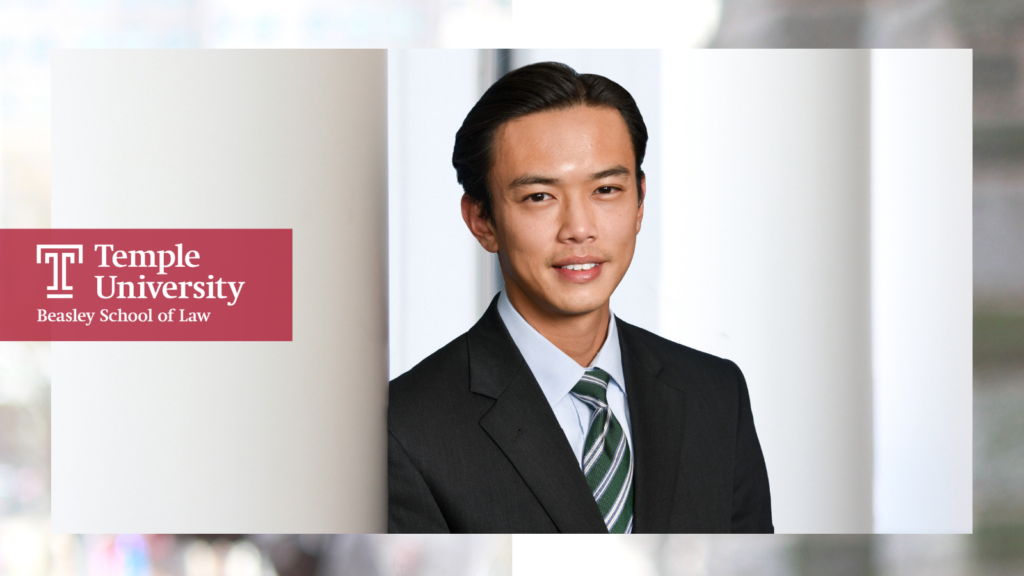
Hometown: Havertown, PA
Education:
- Bates College, 2007 | Physics and Chinese
- Master of Arts, Middlebury College
Job: Associate; Skadden, Arps, Slate, Meagher & Flom LLP
Program: Part-Time Evening, transfered to Full-Time Day
Law School Motivations
I was born in Hong Kong and became a U.S. citizen six months before I attended Temple. One of the last stages of my naturalization process required me to schedule a biometric appointment with the Immigration Services, but I soon realized the appointment slots were never available. After some research, I learned that the online appointment system reset everyday at 4 a.m., so I set my alarm at 3:58 a.m. and kept refreshing my browser. Having made my appointment, I took the morning off work and drove two hours to the nearest field office of the Immigration Services. As I was waiting in the lobby, I noticed an altercation between the security guard and a teenage woman-of-color. The guard would not let the woman into the building because she did not make an appointment, and the woman did not know enough English to understand why she was turned away. At that moment, I realized the thin glass door between that woman and me was probably too insurmountable. My privilege placed me on the other side and I intend to draw on my experience, expertise, and resources to help those who are on the fringes of society.
Professional Experience
I taught at The Haverford School before I switched to the day program at Temple Law. Teaching and being a law student are very similar: one needs to understand the substantive material very well and present it in a succinct and comprehensible way to the target audience. As a teacher, I enjoyed mentoring the most vulnerable members of our community; I hope that I will be able to do the same as a lawyer.
Advice from a Temple Law Grad
- First, take any one-size-fits-all advice with a grain of salt; interrogating your own character and priorities helps you tailor your best course of action.
- Second, law school has a technical part where most need to navigate and perform, such as outlining for exam courses and preparing for OCI (on-campus interviewing). Try not to cut corners and adhere to the well-established playbook. But law school also affords you a spiritual opportunity to appreciate what binds our country together and reflect who you are as a person and a lawyer and where you fit in this complex puzzle of society.
- Third, avoid passive voice.
The Temple Law Difference
“To think like a lawyer” is the most valuable thing I have learned at Temple Law. It liberates my mind from the binary thinking of good versus bad or right versus wrong. Instead, by focusing on whether an analysis is sound or an argument is persuasive, I am able to obtain a more profound understanding of many social and policy issues. I also become a more inclusive person because I am more inclined to empathize with perspectives that I fundamentally disagree with.
What I Wish I Knew
Literature and online forums depict law school as a cut throat, sink or swim place where professors humiliate students with the Socratic method and students compete fiercely among themselves. According to my experience, that depiction cannot be further from the truth. For the past three years, every single student and professor has been extremely supportive and cordial. I wish I had known sooner that I could safely let my guard down, show vulnerability, and embrace more friendships and experiences without feeling distressed.
